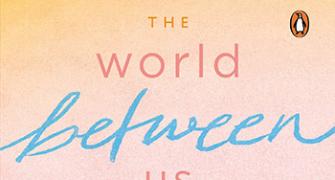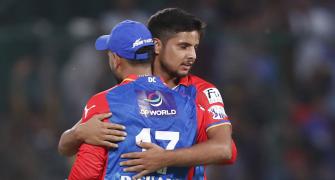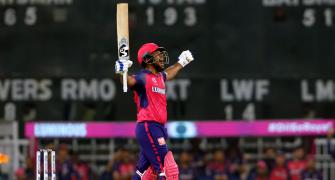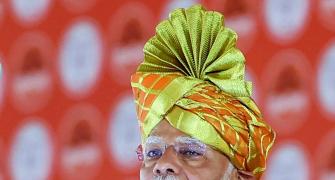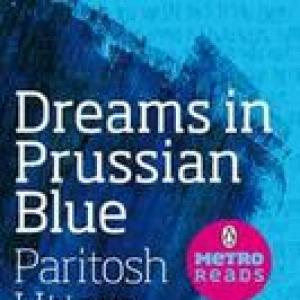It had meant nothing but moments of intimacy, sweet but transient moments.
An intriguing excerpt from Manju Kapur's new novel The Gallery.

She had met him in the first month of college. Join me for coffee?
Anthony D'Souza, second year, debater, actor, poet, mathematician, who wouldn't join him for coffee?
He led her towards the university café. 'You wear no rings,' he said as he held her hand.
'My fingers itch from the sweat. Though my mother is always after me to wear jewellery. She thinks I dress too plain.'
'Is she right?'
Was her mother right? They had both assumed she was.
'Well?'
'I don't know,' she said slowly.
Within a few weeks Anthony announced they needed to take their relationship to another level. This meant borrowing a friend's place. Was she willing?
Of course, she said as anxious quivers ran through her. Would they go all the way? She desired him, as much as he desired her, his Rabbit.
Once in the room, he took out a thick towel from his satchel and placed it on the bed. Ignore that, he said, we are going to take our time. And if you want to stop, just say.
It took an hour and in that hour she lost her thoughts, her mind, her will.
'Should I?'
She could only nod.
'It will hurt,' he whispered, positioning himself above her, 'but after that I promise, you will love it.'
It was just as well she was swimming in a sea of pleasure, for as he pushed against her tightness she wanted nothing more, whatever the pain, whatever the consequences.
He moved slowly, taking his weight on his hands. She drew her nails down his sweaty back, feeling a woman of the world, for here she was giving and bearing the marks of sex.
Deeper she scratched and harder he bit till she cried out and then he stopped, smoothing her hair away from her face, kissing her again and again, looking his tenderness.
They became closer. She was completely his, and he, he surveyed his domain with the eye of a lord and master.
For two years it was Anthony who went with her to buy clothes, Anthony with whom she smoked and drank, Anthony who supervised her reading, Anthony who tried to rearrange her thoughts about sex and marriage.
So antiquated to link the two, separate them and see how free you feel.
In the last year clouds began to appear on her horizon. Paper clouds, made up of brochures with names of American universities on them.
'Don't you want to apply?' he asked. 'You still have a year in which to start the process.'
But she had neither the inclination, nor the stamina, nor she thought the brains. 'My mother wants me to get married.'
'You, Rabbit, are destined for greater things than marriage.' Minal tried not to look bewildered.
'You have a fine artistic sensibility, you are always dragging me to this or that exhibition.'
'Well you drag me to plays and films.'
'Exactly. A relationship of equals.'
'That can continue even if we are married.'
He looked his pity and turned her mind to her equal, essentially free status.
'Mama's telling me to do an MA in Art History from Chandigarh. Apparently it's quite comprehensive, covering both Indian and Western till the present day,' said Minal to her lover some time later.
'You don't sound very involved in my choices,' she said finally.
'Baby, don't be unfair. Of course I am involved.'
But how involved could Anthony be when he had just been accepted with a full scholarship to a master's-cum-PhD programme in maths at Urbana Champaign, University of Illinois?
'You are just pretending. I get it. You're leaving, and we have no future.'
'Baby, baby, don't spoil our last days,' he said, sliding his hand up her leg.
She didn't go to the airport; his whole family would be there. For the last time they spent the night in a borrowed room.
'I love you,' he said when they had finished with the sex. 'We'll write, we'll stay in touch.'
She couldn't bring herself to respond. What had been the use of love? It had meant nothing but moments of intimacy, sweet but transient moments.
It would take a year for Anthony to cease looming over anguished nocturnal hours. If she had married the way they had wanted her to, she would have spared herself much suffering.
Pain made her restless. She needed to go, go, go. Away from her family, their concern, their questions.
Once this ****ing MA is over, I'm out of here. As a first step she announced, 'I want to try for an MPhil in JNU. I can't stand this place and if another person talks to me of marriage, I swear I'll chop their bloody heads off.'
'But why?' wailed her mother. 'How much are you going to study?'
'As much as I need to. But cheer up, maybe I won't get in.'
'You always do. Why not this time?'
'Because competition is tough for JNU. First the entrance exam. Then the point system. I'll only get five extra for being a girl. Not the five for coming from a backward area, nor the five for scheduled castes.'

In JNU politics was everywhere. Elections, very different from DU ones, were held in the first term.
Money from political parties was not allowed, neither were cars permitted for canvassing, nor cash sanctioned for alcohol.
Pamphlets were printed so cheaply that the ink smudged much of the print. Posters were hand drawn.
Once exposed to a political sensibility, Minal began going to debates, often with Katha, her dorm neighbour. She heard about the Israeli occupation of the Gaza Strip—in JNU the injustice towards the Palestinians was anything but remote.
On and on the students went, the Indian government should take a stand, the Israeli government with American support was behaving like modern imperialists.
At the end a resolution was passed, 'We, the student wing of CPI (ML) condemn the unlawful occupation of the Palestinian lands on the Gaza Strip and call for their immediate restoration to the dispossessed people.'
Copies were sent to the foreign ministry and the Israeli embassy. The purity and strength of their beliefs did not depend on how much notice was taken of their resolutions.
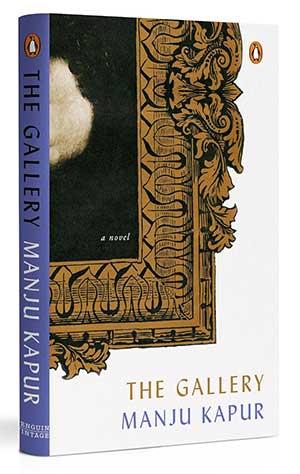
In December there were massive demonstrations to protest the one-year-old demolition of the Babri Masjid.
There were a series of lectures about the dangers posed by the Hindu right wing, about the ways in which the police had aided and abetted the demolition, about how nothing was done to prevent the karsewaks from destroying the masjid, how Muslims all over India had been targeted in the riots that followed.
Secularism was under threat, and nothing could be taken for granted.
Every injustice was grist to the mill. Minal was proud of her institution. In retrospect Anthony's fulminations were seen to be based on a narrow sense of privilege; she was going to live a more high-minded life.
Every time Minal came home a prospective marriage partner was invited to tea, some boy who promptly fell for her. Fair, green-grey eyes, what was there not to love? It was when she opened her mouth that the problem began.
'Why on earth do you have to talk about the Mandal Commission, about the Babri Masjid? This is marriage, not a classroom. These people don't even understand what you are saying.'
'Shouldn't we know each other? I mean, like really know each other? That's why I mention that in JNU I make tea for the maid who cleans my room. What's more, I give it to her in one of my cups.'
'Mina, you are saying this just to shock,' said a sister-in-law.
Mrs Malhotra stared at her daughter, so lost to all propriety that she shared her dishes with the servants. What next? Invite them to your table? Having Minal home was such a fraught enterprise.
Days of looking forward to her arrival, then fights, tension and secretly counting the days till she left.
Her sisters-in-law were sure she had met some intellectual type, otherwise how come she was being so picky about really fine boys? Anything was possible in JNU.
Excerpted from The Gallery, by Manju Kapur, with the kind permission of the publishers, Penguin Random House India.
Feature Presentation: Ashish Narsale/Rediff.com

